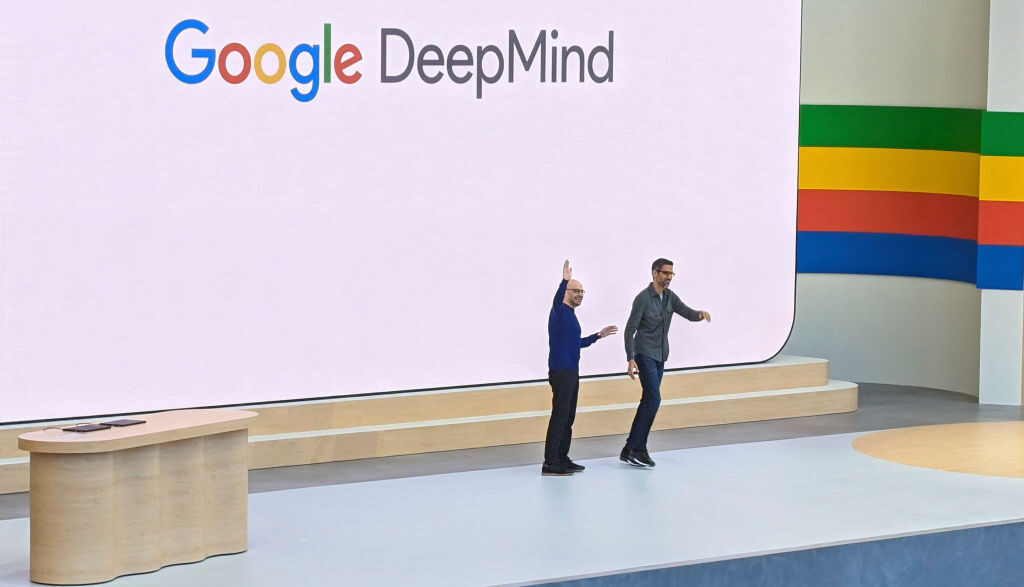No company is quite so inseparable from the World Wide Web as Google, which made searching the internet an eponymous verb. The web made Google rich, too, but this week Google relegated it to a submenu. In a design of its next-generation home page that the company showed at its annual I/O developer conference this week, the demotion is quite clear.
Searching now returns a blancmange of content in special pull-out boxes, apps and features, some of it artificially generated. The days of lists of links are over — if you want to see web pages the tech giant now offers a “new ‘Web’ filter” that will refine your search to only see web pages. This may startle Generation Xers whose first taste of the online world was via a web browser, but the web has become a legacy format like the DVD.
The high hopes of the web really began three decades ago. In the spring of 1994, online communities consisted of services such as Compuserve, or bulletin boards, which were either expensive or difficult to use, as were the first internet searching tools like Gopher. But in the mid-Nineties, users launching the new Mosaic browser could soon discover how simple it was to produce these early mixed-media pages: now, anyone could publish anything.
This caused particular excitement among progressives. Here was a mechanism to bypass “big media” and the false consciousness it purportedly created for the masses. Radio had also started as a two-way communication system, but now the web offered publishing at a radically lower cost. It gave a pamphleteer the same profile as Condé Nast. The promise of the web explains the subsequent determination to keep the internet “free” or “open”.
The media’s fetishisation of the web was not always shared by the public. For example, in 2002 the BBC conducted a public poll to nominate the greatest living Britons, and Corporation staff insisted that the protocol’s co-inventor Sir Tim Berners-Lee should be one of the 100 nominees. To their dismay, he came 99th.
Today’s teenagers — and I’ve polled a random sample — neither know nor care what “the web” is. They were born into mobiles and social media, and see no interest in reviving it as a semi-ironic cottagecore medium, like the cassette tape. Web utopianism is strictly a Gen-X media phenomenon.
But, in reality, Google’s interest in the web has been diminishing for a very long time. Articles lamenting its demise have been appearing since Wired’s tastemaker in chief Chris Anderson proclaimed the web “dead” in 2010. Berners-Lee regularly issues manifestos to “save” the web, and nobody pays any attention. Today, over 80% of Facebook’s two billion daily users access the social network only via a phone. Businesses no longer feel obliged to create websites. Much of what’s left is tawdry and dying.
Google is currently erecting a wall between the searcher and the information they seek, using Generative AI, which the company believes creates more useful results such as summaries. This barrier, consisting of what Google’s former research director Meredith Whittaker calls “derivative content paste”, causes problems: what’s generated may or may not resemble the original, thanks to additional errors and “hallucinations”. The new barrier also removes the creators of original material from the value chain. The world was never as exciting as we were promised by the web utopians; now, it will be blander than ever.











Join the discussion
Join like minded readers that support our journalism by becoming a paid subscriber
To join the discussion in the comments, become a paid subscriber.
Join like minded readers that support our journalism, read unlimited articles and enjoy other subscriber-only benefits.
Subscribe